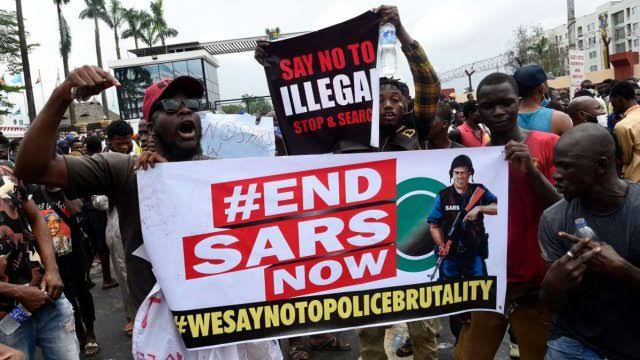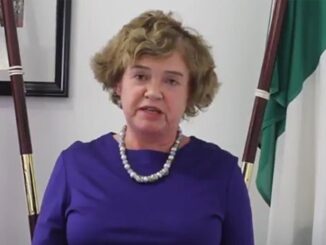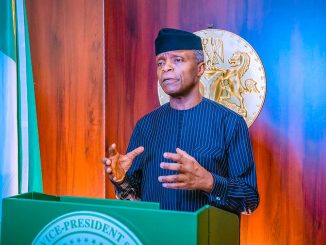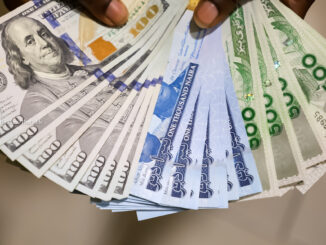
The Nigerian government has said that he accounts of the 20 #EndSARS campaigners were frozen because the funds in their accounts might have been linked to terrorist activities.
This was stated by the Federal Government against the protesting youths at a Federal High Court in Abuja, via a written address in support of a motion ex parte filed by the Central Bank of Nigeria (CBN).
But people had protested the CBN’s action approaching the court to give a semblance of credibility to its action, after it had frozen the said accounts before securing a court order.
As reliably gathered, the bank accounts of the 20 #EndSARS leaders had been frozen by the CBN in the second week of October, after which it approached the court to seek an ex parte order to freeze the accounts.
But in the case filed before Justice A. R. Mohammed, with suit number FHC/ABJ/CS/1384/2020, the CBN, did not mention the fact that the 20 accounts were owned by persons involved in the #EndSARS protests, but told the court that the funds might have emanated from terrorist activities.
In its written address, the CBN states: “My lord, the nature of the transactions undertaken through the defendants’ accounts are of suspected terrorism financing in contravention of Section 13(1)(a)and(b) of the Terrorism (Prevention)(Amendment) Act, 2013 and Regulation 31(2)(a)and (3)(b) of the Central Bank of Nigeria Anti-Money Laundering/Combating the Financing of Terrorism Regulations, 2013.”
ALSO READ: Sam Adeyemi, Davido, Tuface, Kanu, Falz, Yesufu, 46 others sued over #EndSARS protests
Further to this, in supporting the affidavit deposed to by its lawyer, Aondowase Jacob, on behalf of the CBN, the apex bank stated that the Head of the Economic Intelligence Unit of the Governor’s Department, CBN, Joseph Omayuku, had conducted an investigation on the accounts of the defendants and other individuals and entities held with certain banks in Nigeria.
In the investigation the CBN said it conducted, it submitted in its affidavit to the court that, its findings showed that the owners of the accounts may have been involved in terrorist activities.
“There is a grave allegation that the defendants are involved in suspected terrorism financing via their bank accounts in contravention of the provisions of extant laws and regulations. The aforesaid transactions undertaken by the defendants, using their bank accounts, can cause significant economic and security harm to the public and the Federal Republic of Nigeria if left unchecked.
“The applicant (CBN governor) is thus desirous to have the court empower him to direct the freezing of the 20 accounts listed on the annexure to this application and all other bank accounts held by the defendants.
“A freezing order of this honourable court in respect of the defendants’ accounts would also enable the investigation of the activities of the defendants to a logical conclusion with a view to reporting same to the Nigerian Financial Intelligence Unit,” the CBN pleaded.
It said unless the order was granted, it would not be able to ensure that the money remained intact, while investigations were ongoing.
Consequent upon the order granted, the 20 accounts frozen by the CBN domiciled in Access Bank, Guaranty Trust Bank, Fidelity Bank, United Bank for Africa and Zenith Bank, were said to have been flagged after they received money with the narration #EndSARS.
Even, one of the frozen accounts, marked 0056412470 and domiciled in Access Bank, belongs to Bolatito Olorunrinu Oduala, an #EndSARS campaigner, already appointed by Governor Babajide Sanwo-Olu, into the Lagos State judicial panel set up.
Another frozen account marked 0033974485 and domiciled in Access Bank belongs to Bassey Israel, the medical team coordinator for the #EndSARS protests in Port Harcourt.
Likewise, an account marked 0054676984 domiciled in Access Bank belongs to Gatefield Nigeria Limited, which paid freelance journalists to cover the protests.
In granting the CBN pleas, Justice Mohammed froze the accounts for 180 days, saying, it is subject to renewal, adding that anyone who was not satisfied with the ruling should feel free to challenge it.




